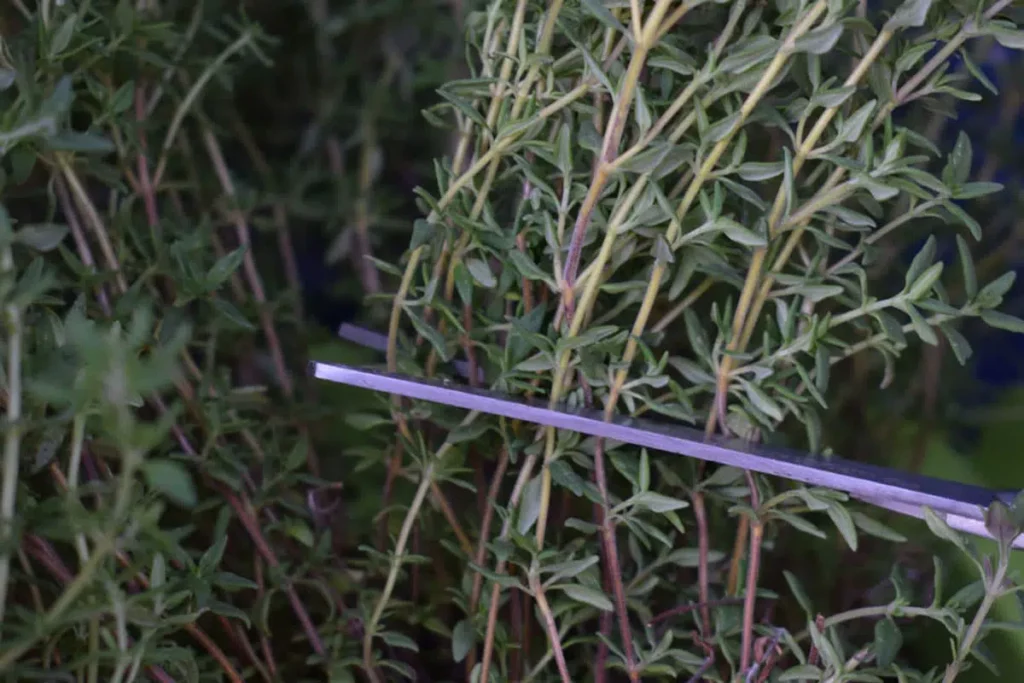Thyme is a perennial culinary herb that can grow very old with regular pruning. This prevents the woody plant from balding and ensures that young branches and leaves grow back.
- Pruning twice a year
- first pruning in March / April, but not during frost or rain
- second pruning after summer bloom
- never cut into the wood, only cut green branches
- Pruning only on dry days with mild weather conditions
Contents
The best time
In the kitchen you need the fresh, green herb. Therefore, thyme must be prevented from becoming woody, which is done by pruning twice a year. The first, more vigorous pruning is done in early spring – preferably in March or April – and the second after the summer flowering. With regard to the correct timing, you should also heed these pruning rules:
- Spring pruning before new shoots if possible
- do not cut back during frost / threatening late frost
- bring potted thyme into the house at night after pruning
- cut back potted thyme cultivated indoors as early as February
- continuously harvested / pruned thymus does not need to be cut back in summer
Tip: Perform thyme pruning only in dry, mild weather: Rain or dew in the early morning often infects freshly cut plants with fungal diseases, so it is better to postpone this activity in humid weather.
Frequently asked questions
How to cut thyme correctly?
The popular spice is a semi-shrub that becomes woody over time. To ensure that fresh shoots always grow back, cut the plant back by about two-thirds with sharp, clean secateurs. Do not cut into the old wood, but only the green shoots to about two to three centimeters. The herb will then sprout vigorously.
When can I harvest thyme herb?
Basically, the evergreen kitchen herb can be harvested all year round, even in winter. It is particularly aromatic if you harvest the leaves just before flowering and then dry or freeze them. You can also still use flowering thyme, but it is no longer as strong in flavor.
Is thyme hardy?
Not all of the 200 different types of thyme are winter-hardy. You can plant out species such as Thymus vulgaris, Thymus serpyllum (sand thyme), Thymus odoratissimus (scented thyme), Thymus longicaulis (cascade thyme) in the garden bed without worrying.


